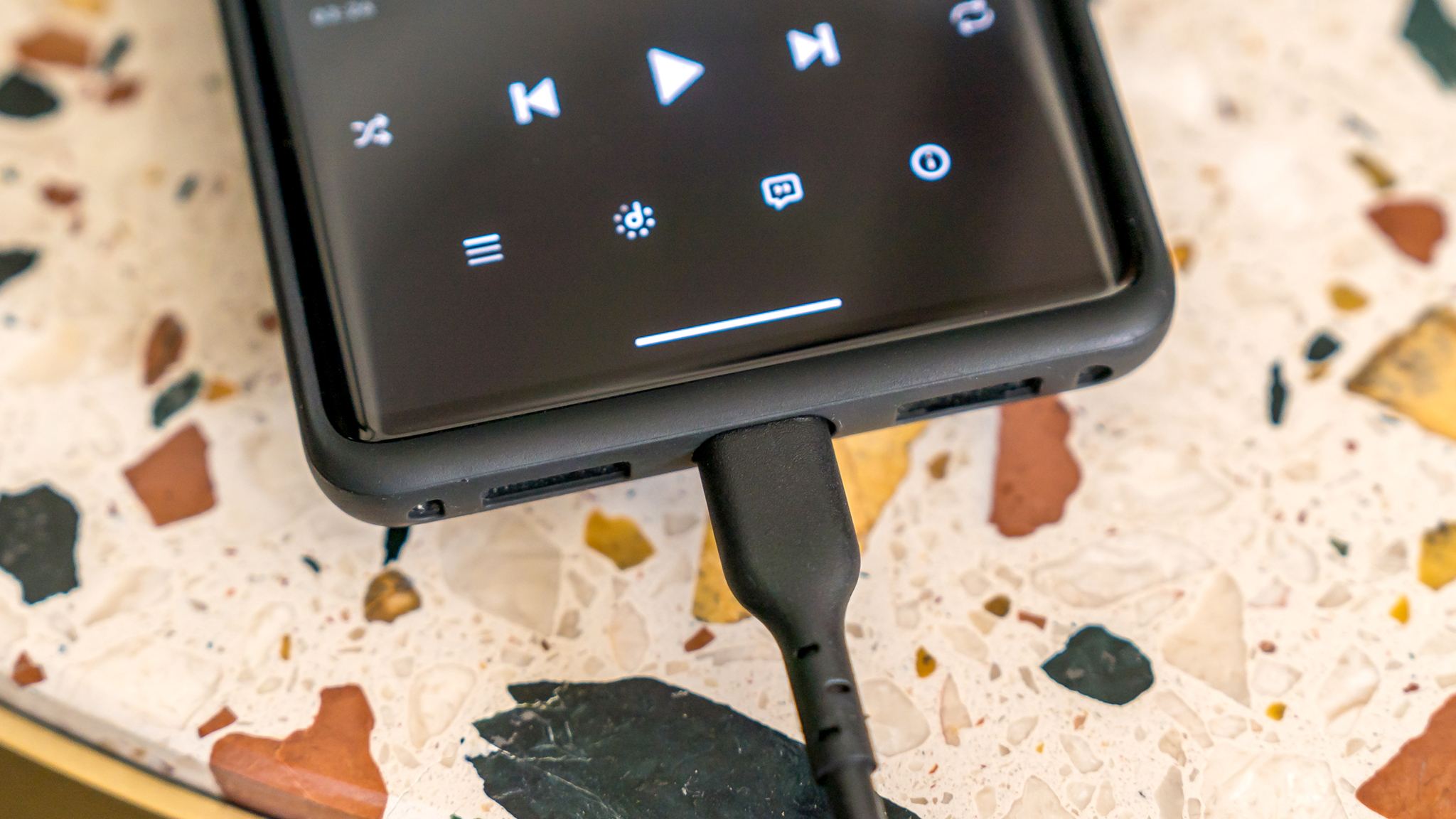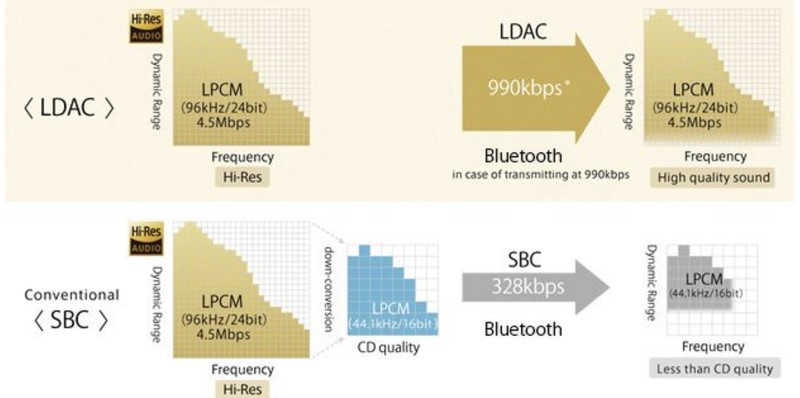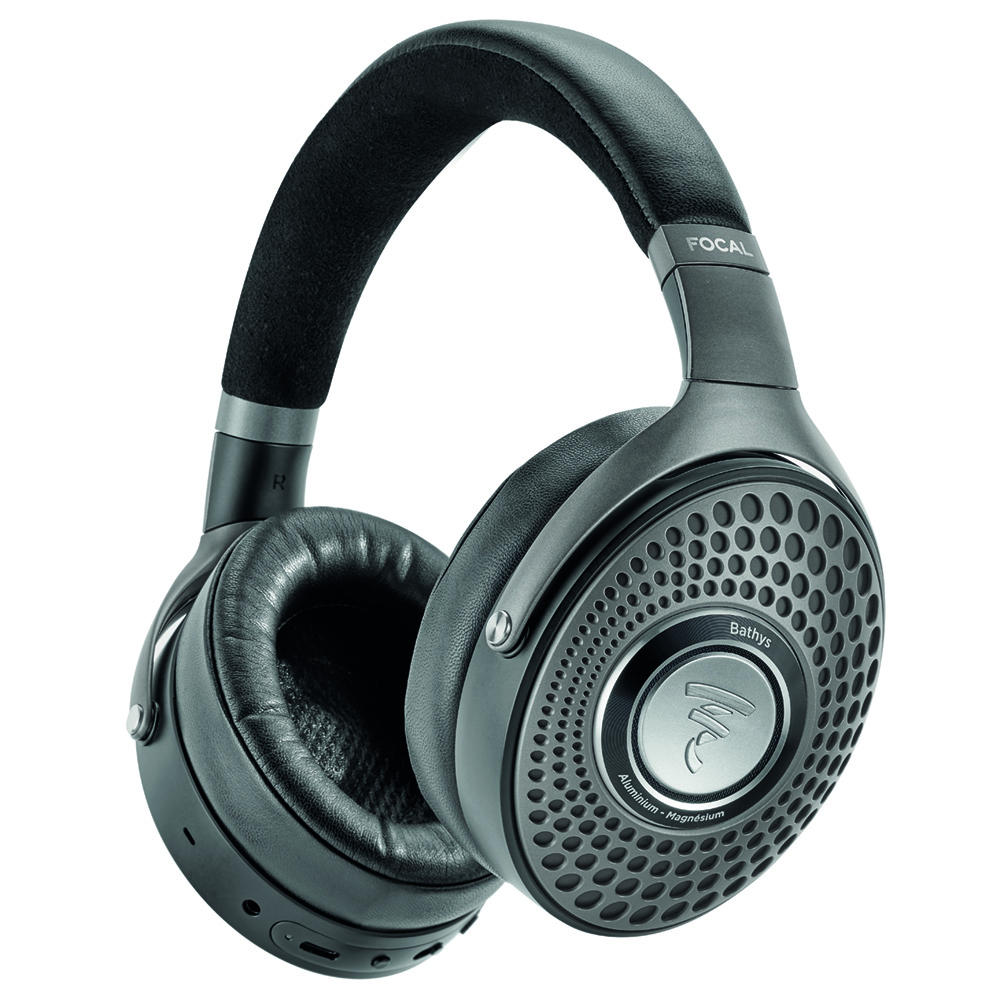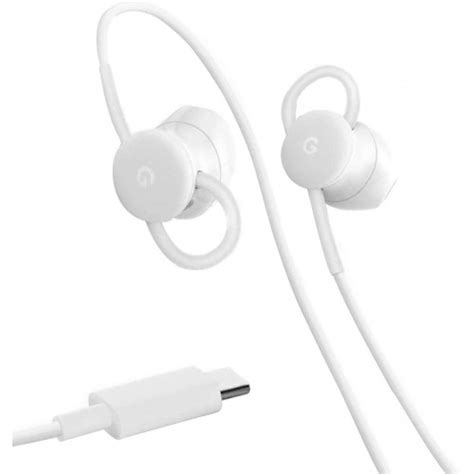Do USB-C headphones sound better than wireless or other wired connections?
What port are we playing?

Do USB-C headphones sound better than wireless or other wired connections?
Best answer: Yes. Wireless technology continues to evolve, but wired connections can deliver better audio quality under most circumstances.
Comparing audio compression
Superior sound quality depends on a variety of factors, but one that comes into play is audio compression, which affects wired headphones and earbuds far less than it does wireless ones. They can vary, depending on if the connection is via USB-C, Bluetooth, or standard 3.5mm jack.
Audio playback over USB-C or 3.5mm audio jack should sound the same because the only difference is the 3.5mm connection is an analog signal while USB-C is digital. That means the audio you play through the 3.5mm jack needs to take the digital signal (from your phone or tablet) and convert it to an analog signal your headphone or speaker can read. Being a digital connection, USB-C can skip that step because there's no need to convert the signal coming from the device it's connected to.
A wired connection also means fewer restrictions on throughput, so they can produce "near-lossless" audio. That matters if you're ripping tracks from CDs or using a streaming service that offers hi-res music, like Tidal, Amazon Music, Qobuz, and Apple Music — all of which either offer it included or as a separate subscription tier. Lossless or near-lossless audio attempts to retain as much detail from the original studio or live recording as possible, basically playing it the way the artist or producer intended. Thus, you can only achieve the highest lossless playback using a wired connection like USB-C.
Music streaming services generally use "lossy" compression, which is a way of cutting down certain audio frequencies that may be imperceptible to most humans in order to reduce the overall file size. All the major services can play music with compression, so even if you use a wired set of headphones or earbuds listening to them, lossy audio will likely still sound the same.

Bluetooth is the wireless audio standard found in so many devices today, and while it continues to improve in both range and capacity, it can't quite reach the same levels of fidelity. It is a convenient digital connection, only it needs to compress the signal before getting to your headphones or speaker. Typically, most streaming services will default to 256kbps or 320Kbps bitrates, which you would hear from common Bluetooth codecs like SBC, AAC, and aptX. Some codecs have higher bitrates edging closer to hi-res territory, like LDAC, LHDC, and aptX HD, that can push up to 990Kbps.
With a wireless connection, Bluetooth has the inherent advantage of cutting out cords, and the technology continues to get better at reducing latency and signal cutouts for smoother playback at all times. If you don't like a dangling cable sticking out of your phone, tablet, or computer, there's plenty to like about what Bluetooth does.
Which devices support USB-C headphones?
USB-C is a versatile port for a few reasons. It can transfer data at high speeds, and in some cases, also charge a device at the same time. That's why headphones, speakers, as well as amplifiers or DACs (digital-to-analog converters) have the ability to transfer audio data over USB-C. While 3.5mm jacks on smartphones are rare by today's standards, those devices will usually prioritize that port over USB-C. In some cases, you may have headphones that offer both 3.5mm and USB-C wired playback, depending on the configuration.
Be an expert in 5 minutes
Get the latest news from Android Central, your trusted companion in the world of Android
Some smartphones have an onboard DAC that converts the signal to digital before passing it through to the USB-C port, which ensures that all USB-C headphones or earbuds are compatible. If you use a USB-C-to-3.5mm adapter, you will have the digital signal converted to analog when plugging in 3.5mm headphones.
There are USB-C headphone varieties to choose from among vastly different styles and prices, be they over-ear headphones or wired earbuds. You may even find unique models like the Focal Bathys that have a built-in DAC to receive the highest possible quality, particularly from any source offering lossless audio. The Bowers & Wilkins Px7 S2e headphones don't come with a DAC but ensure hi-res playback either through USB-C or 3.5mm. Depending on the pair of headphones that offer wired playback, you may even be able to play audio and charge them at the same time. The upside of USB-C headphones or earbuds is that battery power often doesn't matter because you're already plugged in.
One thing you lose out on in most wired situations is active noise cancelation (ANC), meaning you won't be able to extensively reduce background noise because that feature is tied to wireless capabilities. You may also lose out on the ability to tweak the audio using an EQ, should the manufacturer offer that as a feature in a dedicated app.
For those and other reasons, manufacturers often choose to offer the best of both worlds: play music wirelessly or go wired whenever you prefer.

This one's got your DAC
Focal poured a lot into the Bathys, but you get a lot for the hefty price tag, including a built-in DAC via the USB-C port that can take your audio experience to audiophile levels. Listen for clarity at your leisure, or go Bluetooth on the go.

Budget-friendly wired earbuds with good sound
Easy and simple. Google won't put them in the box anymore, but you can still get your hands on them. These in-ear wired earbuds lack any sort of fancy features, though you get reliable performance and playback for what you pay.

Ted Kritsonis loves taking photos when the opportunity arises, be it on a camera or smartphone. Beyond sports and world history, you can find him tinkering with gadgets or enjoying a cigar. Often times, that will be with a pair of headphones or earbuds playing tunes. When he's not testing something, he's working on the next episode of his podcast, Tednologic.
